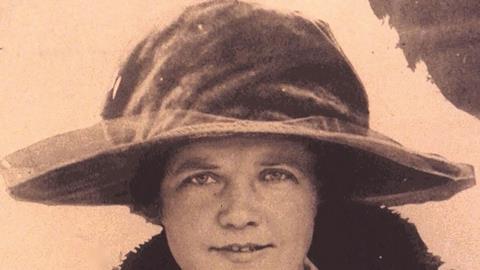This year marks the centenary of the formation of the Six-Point Group, a feminist organisation dedicated to campaigning for equal rights for women through legal reform. At any one time, they targeted six areas; then, if reform was achieved in one, added another to take its place. The initial six points, published on 21 February 1921 in the feminist journal Time & Tide, were:
- Satisfactory legislation on child assault;
- Satisfactory legislation for the widowed mother;
- Satisfactory legislation for the unmarried mother and her child;
- Equal rights of guardianship for married parents;
- Equal pay for teachers; and
- Equal opportunities for men and women in the civil service.
Over the years the Six-Point Group replaced the specific issues with equality for women in six general areas: political, occupational, moral, social, economic and legal.
The group differed from other feminist associations of the time in two respects. First, it focused on obtaining formal equality in both public and private spheres – equal rights in the workplace and in the home – without special treatment for women. The ‘new’ feminists, by contrast, worked to improve the position of wives and mothers through economic rights in marriage and protective legislation in the workplace. The Six-Point Group also parted company with those feminists who thought the first priority was to change attitudes, and then legal change would follow.
The group’s founder, Lady Rhondda (pictured), had been a suffragette and knew how long it took to change attitudes – a good 70 years in the case of the vote. Her view was that, now that women could vote and stand for parliament (though not sit in the House of Lords, a lifelong crusade, not won until 1958, after her death), their electoral power should be harnessed to push for reforms that benefited their sex. Only when formal equality was won, she argued, would the full strength of attitudinal resistance be revealed and then it could be tackled with the law on their side.

The 1920s started optimistically. Not only had the vote been won, but the Sex Disqualification (Removal) Act 1919 opened most professions to women, as well as enabling women to be magistrates and jurors. In respect of the Six-Point Group’s issues, the Criminal Law Amendment Act 1922 addressed the age of consent for girls, removing men’s defence (except for young men and only once) that they mistakenly thought the child was over 16. This was hardly ‘satisfactory legislation on child assault’, but it was a start. The Guardianship of Infants Act of 1925 gave equal guardianship rights to fathers and mothers but only if they were separated; it was only in 1973 that spouses in intact marriages became equal guardians of their children.
But each of these reforms fell short of true equality, and the other ‘points’ remained untouched until well after the war. The financial plight of widows, and unmarried mothers and their children was hardly addressed. Equal pay for teachers and civil servants was only introduced from the mid-1950s, and equal job opportunities were so far into the future that they formed one of the first four demands of the Women’s Liberation Movement in 1970. It was only with the passing of the Sex Discrimination Act 1975 that discrimination in employment was finally outlawed.
The Six-Point Group has been criticised for appealing mainly to professional women, rather than the much greater number of full-time housewives and working-class women. It is true that its membership was dominated by educated middle-class women. The organisations affiliated to it included the British Federation of University Women, the Federation of Women Civil Servants, the National Union of Women Teachers – but also women’s co-operative guilds, radical working-class associations.
In the group’s defence, it is clear from their original six points that they were as concerned with women’s role as wives and mothers as with providing women with alternative means of support and fulfilment, much needed by the large numbers of women left unmarried in the male-depleted post-war society.
The Six-Point Group is important for recognising the potential of law to change attitudes – that legal change is the starting point, not the end of the matter. In foreseeing that resistance could survive law reform and sexism would persist in informal ways, they were clearly right. Nothing shows this better than the failure of women to thrive in the legal profession: admitted in 1919, they formed only about 5% of both solicitors and barristers until well into the 1950s – victims of masculine cultures, harassment, a lack of family-friendly policies and outright discrimination.
The Six–Point Group survived until the death of its last secretary, Hazel Hunkins Hallinan, in 1982, when, with the Women’s Liberation Movement in full swing and equality legislation unfolding, their goals had come to seem outmoded.

Rosemary Auchmuty is a professor of law at the University of Reading. Erika Rackley is a professor of law at the University of Kent. Together they led the Women’s Legal Landmarks project, an interdisciplinary collaboration involving over 80 feminist legal and history scholars. The book Women’s Legal Landmarks: Celebrating the history of women and law in the UK and Ireland is out now.
































No comments yet